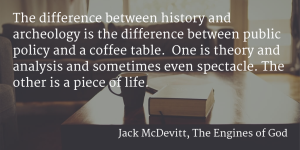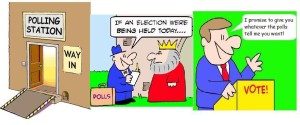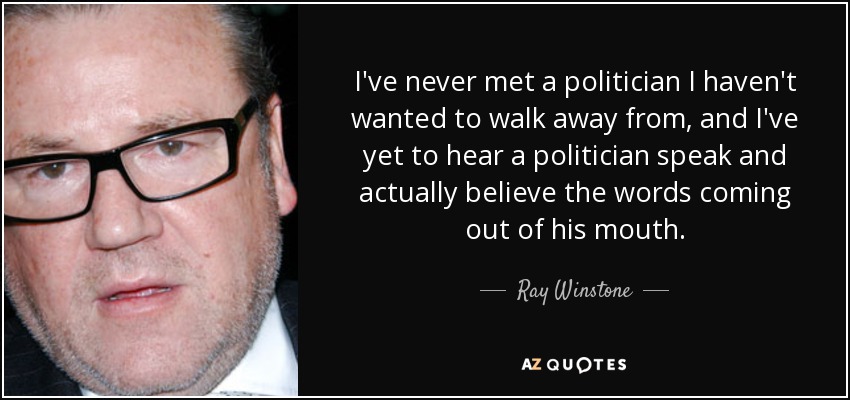
I have a had a love-hate relationship with The Engines of God. It was a fun book, but the alien concept… ugh.Still, this is a damned good quote.
As the political climate in America comes to a boiling point, I’m finally taking some time out to dissect the argument of the candidates to see which ones I think might do a decent job running this country. Some of these people can’t tell the difference between public policy and a coffee table. One is theory and analysis and sometimes even spectacle. The other is a piece of life.
As I listen and watch the politicians go round and round about why they are better than them, I’m alternately crying out in frustration and shaking my head in mockery, and laughing hysterically at the stupidity. I do this with all of them, and I know you do too. We agree with one candidate on one thing, but disagree with them the next. One sentence we are nodding our head at, the next we are slapping our foreheads and calling them an idiot. At least, those of us that don’t follow a political dogma have the freedom to realise each candidate is human — smart in some areas, really ignorant in others.
The problem is, politicians often can’t tell the difference between the theory that stems from analysis and what is part of life. Let’s take the current El Niño for example. A few months ago, scientists at NASA announced that the Pacific oscillation were lining up to make one hell of an El Niño winter for all of us. Maybe. Of course, this was June when the hot spots started appearing, so everyone was getting exciting thinking that the drought in California would come crashing to a close thanks to more rain.
But there was a hitch. Of course there is. It is nature that we are speaking about, after all.
“This El Niño is getting billed as the ‘great wet hope.’ Many people in the American West are looking to El Niño to save them from drought,” Patzert noted. But he cautioned that “1997 was mayhem,” and drenching rains on a parched landscape are just as hazardous as a drought.
The public policy is the thoughts and hopes. The coffee table is the mayhem that resulted after the parched earth received rain it couldn’t absorb or hold. One is grand idealism with reality partially removed, the other is all reality shoved into your face making you whimper.
Then again, their constituents can rarely tell the difference either.

Poll: the place you go to vote. Poll: a survey of opinions. Pols: the politicians. Found on Cyber the Vote.
Let’s face it, we are often idealistic in things in life, and we want what is best*. The best for our communities, the best for our families, the best for our friends, the best for our children. Simply the best possible things. But worse than on top of best, we want it to be predictable and controllable. It is comforting to know that even if we can’t have the best right now, we can strive for it. It’s more comforting to know that if we bitch and whine loud enough with more than a few like-minds, we can feel like we have some sort of control over things. That predictability over our world is what makes us satisfied to be living in it under any given circumstances.
*For any given value of best, as it changes depending on who you are, what your upbringing was like, and what trajectory you are on… among other things.
But there are some things we just can’t control. Like nature. Like other people with different definitions of the word “best”. Like a toddler hell-bent on getting their own way, we fight those things. We scream, kick, plead, and break down in tears in demand that things go our way. We can be exceptionally immature for being adult human beings, can’t we?
And we get worse when we can’t tell the difference the policy and the coffee table.
When we know it’s theory, analysis, spectacle, or even an outright lie, we know it’s not a piece of life. We don’t take it seriously, and we look elsewhere. The political circus has always spent a good deal of time telling people what they want to hear in hopes that they get the job. Sure, there are a few honest ones tossed into the mix, but most politicians as far back as voting for a chieftain of a tribe were nothing more than scoundrel betting on us being blinded into thinking their current, and rather ephemeral, policy was a piece of real life.
The politicians listen to us toddlers on a war path and tell us exactly what they think will make us stop destroying the house and upsetting their predictable, stable worlds. Most of them do nothing more than placate because change is hard and not usually taken very well. Some of us want the earth to be pristine, others want a world constructed with robots. Some what universal health care, others want a free market. Some need people to walk them through life, others desire more freedom of movement. It’s pretty obvious that pleasing everyone isn’t on their list, instead they need to only please the loudest majority that can make their life miserable.
That’s not very promising, is it?
The best we can do is learn to recognise the difference between the idealism and real life as well as the truth behind the lies. Only then will we stop being blind-sided by hopes and dreams that are being used for other’s gains.








